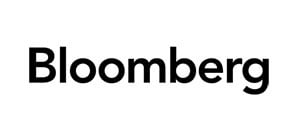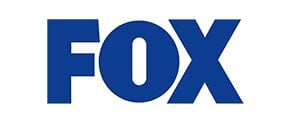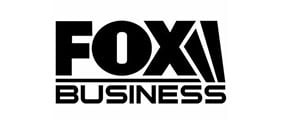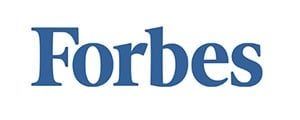WebiMax CEO, Ken Wisnefski expects to see changes at Facebook after whistleblower testifies
WebiMax PR Team, October 7, 2021 at 9:54 AM
Watch the full interview:
Kristen Scholer: Welcome back to Cheddar news, everyone. Well, Facebook is feeling the heat. Whistleblower Francis Haugen, testifying on capitol hill today, and she had plenty to say about the social media giant. Haugen making a particularly poignant remark about the company when it comes to secrecy, take a listen.
Frances Haugen: During my time at Facebook, I came to realize a devastating truth. Almost no one outside of Facebook knows what happens inside of Facebook. The company intentionally hides vital information from the public, from the U.S government, and from governments around the world.
Kristen Scholer: All right. Well, joining me now is Ken Wisnefski, founder and CEO of Webimax.com. Ken, thanks so much for joining. If you've been listening to the hearing today, what are your takeaways?
Ken Wisnefski: So I think that one of the things that really struck me as something that I think was important was the notion around how the laws and regulations that are out there for the internet are ones that are kind of lacking and are ones that haven't really been updated.
As the growth of the internet has really taken place, a lot of the laws and regulations that are in place are 25 years old. So we're finding now that scenarios like we're seeing with Facebook, you know, are things that need to start being addressed more.
Kristen Scholer: I do want to play another sound bite that we got from the whistleblower. We officially learned her identity on 60 minutes on Sunday and then followed this actual testimony; we were playing it there. But let's take a listen to what else she had to say today.
Frances Haugen: These problems are solvable. A safer, free speech respecting, more enjoyable social media is possible. But there is one thing that I hope everyone takes away from these disclosures; it is that Facebook can change but is clearly not going to do so on its own. My fears that without action, divisive and extremist behaviors we see today are only the beginning.
Kristen Scholer: Do you think, Ken, that this time is different. That finally, after years, really going back to 2016 of the misinformation that we've seen, the divisiveness that we've seen. And then, of course, the sad reality about the harm to teenage girls in particular that its platforms have caused. Do you think that this is a watershed moment and we will see change?
Ken Wisnefski: I do think that this is one of the first times that we've really seen kind of behind the curtains, some of the things that are going on at some of these really large tech giants that are out there. The fact that we have someone who actually worked on specific algorithms within Facebook is something that is really not very common.
So when we look at the fact that we're getting information and finding out how some of this information was apparently known to Facebook, it really places an onus on probably the government to look a little bit harder at regulations that could really change things and force these large tech companies to comply.
Kristen Scholer: The role of a whistleblower is never easy; they do face backlash at times from the general public on these platforms. You know, eventually, possibly from the company itself via a lawsuit that could ensue.
But it's interesting here that Frances is speaking very confidently today and actually providing some prescriptions as to how things could change at Facebook, notably raising that minimum age requirement on Instagram from 13 to 16 or 18 years old. And then even calling on Congress really to act. Do you think that Congress can use this testimony to try to make change for the better?
Ken Wisnefski: I do. I think the challenges and from one of the things that I typically see, is that the advancements of things like Instagram and Facebook, and even sites like Tik-Tok have really exceeded and gone so quickly into the future, that lawmakers, the law itself really struggled to be able to catch up with the changing dynamic that's out there.
So, in turn, some of the laws and legal ramifications that might come down, by the time they're actually put in place can actually be antiquated. Technology moves so much quicker than some of these aspects.
So while I think we're heading in the right direction, the reality of it is I think you really need to consider the fact that technology and some of these platforms evolve so quickly. They need to really be able to put rules and regulations in place that are things that can not just stop what's going on today, but can be forward-thinking and also be able to put something in place as those get further down the road.
Kristen Scholer: It does seem like a lot Ken rides on the algorithm, and the whistleblower, Francis Haugen, actually worked on algorithm products at Facebook. Algorithms, of course, harming teen girls right who are using the Instagram platform a sewing division, all things of this nature that the whistleblower is saying here. What about the algorithm do you think might be able to change?
Ken Wisnefski: Sure. I mean, I think that's probably one of the easiest aspects to change because the algorithm right now is really very much based upon popularity.
So scenarios that are getting you know more engagement are going to be the ones that are often shown more. And that just seems to be kind of a common algorithm across all of these tech platforms.
By being able to go back and pull back a little bit more on how that algorithm works and limiting who might be seeing some of these advertisements or posts, and not necessarily doing it by the current algorithm, you could see some pretty dramatic changes right away.
But again, keep in mind that this also will upend the existing advertising model and revenue-driving that Facebook has across the Instagram and Facebook platform itself. So these are some scenarios that they can fix, but it also, in some respects, begins to damage their bottom line.
Kristen Scholer: Yes. Do you think we have to wait to hear from Facebook to get its official response, I guess, in terms of next steps and how it might impact the business going forward. Just due to timing, I only have one question left? I'm just wondering the outage that we saw yesterday. Facebook said it was its own making. What signal does that send to users?
Ken Wisnefski: I think that the, I mean let's be honest, the timing of the outage was extremely curious and concerning, based upon the fact that this whistleblower testimony had gained such prominence.
There had been such really glare around this. To have such an outage that they hadn't had anything like this in over 13 years, right? Almost this type of outage, you know when the internet was right, 2008 is prehistoric times in the internet, you know is really something I think is curious.
But I think at the same time I think that Facebook can do a good job in being able to restore a lot of their identity and faith in customers by making some changes and showing that this testimony has really taken impact on them and they're willing to make changes to make things better along the way.
Kristen Scholer: Ken, thank you so much for joining the show this afternoon. That's Ken Wisnefski, founder and CEO at Webimax.com.














